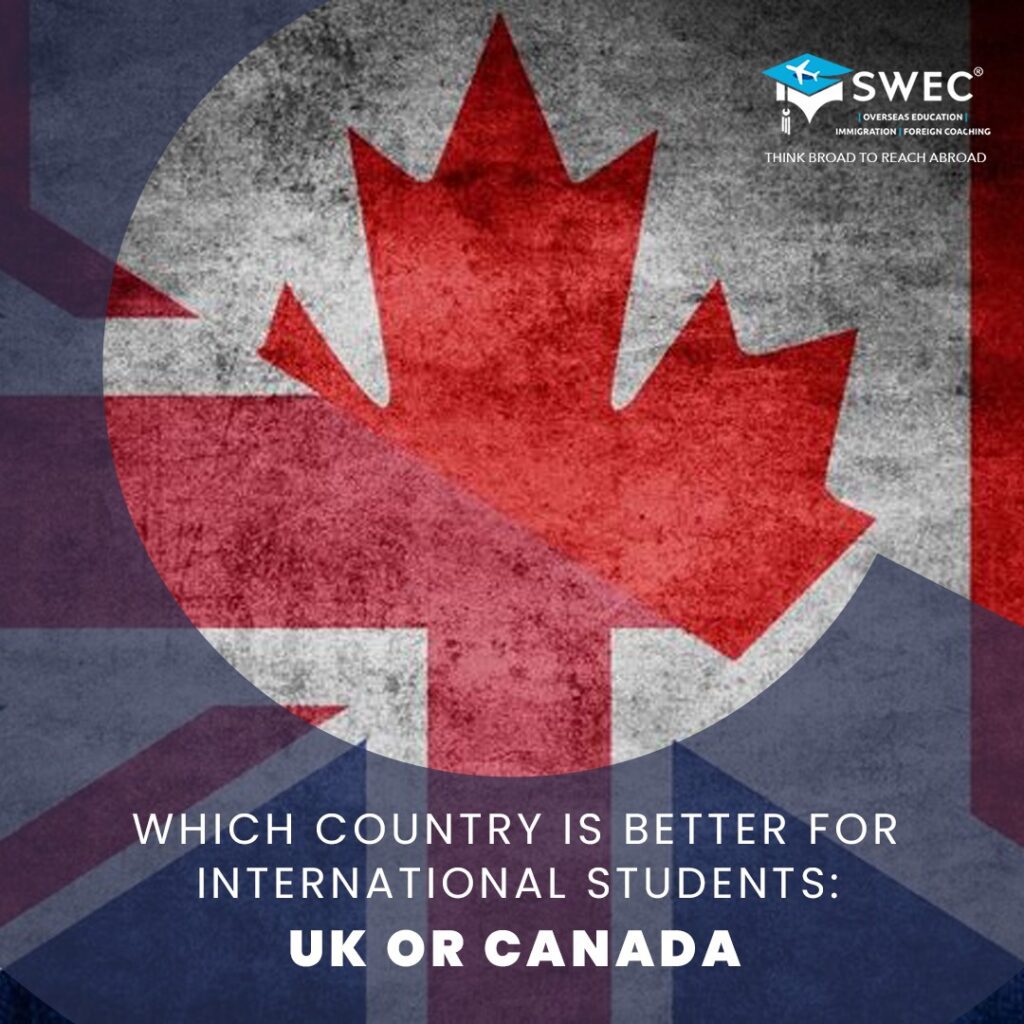
We receive a lot of queries regarding the IELTS requirement for a Canada study visa, especially with new changes to the IELTS score for Student Direct Stream (SDS). There is no one-line answer to this question, so we believe that writing this article in detail to understand the IELTS requirement for a Canadian study visa is much needed.
The first thing to clarify, if you have an overall 6 bands in IELTS Academic with 1-2 modules 5.5, then you have always been eligible to apply for a Canadian study visa via general study visa application or non-SDS.
Only the citizens of 14 eligible countries are eligible to apply for a Canada study visa via Student Direct Stream (SDS). The rest of the countries have to apply for Canadian study visas under the general stream or we can say non-SDS.
Citizens of 14 SDS-eligible countries are also eligible to apply under non-SDS. As per IDP IELTS, it is confirmed that beginning August 10, 2023, only 6 bands in IELTS Academic will be needed for an SDS study visa, rather than 6 in each module. This means individuals having 5.5 in 1-2 modules with overall 6 bands will be eligible to apply under SDS beginning August 10.
- To secure an offer letter from a Canadian college or university, the IELTS requirement varies depending on the level of a college program for an SDS or Non-SDS study visa. There is no separate requirement for any of the 2 streams to get an offer letter.
- However, IRCC has set minimum criteria for IELTS requirements to apply for a Canadian study visa under SDS. Currently, it is set at an overall 6 in IELTS Academic or General with no module less than 6.
- For Non-SDS study visas, IRCC has not set any minimum IELTS requirement to apply for a Canadian study visa and IELTS is only needed to secure an offer letter from colleges.
To make it more clear, see the below table for contrasting differences in SDS and non-SDS study visas.
| Student Direct Stream (SDS) Study Visa | Non-Student Direct Stream Study Visa |
|---|---|
| IRCC requires 6 in each module of IELTS General or Academic | Overall 6 bands with no module less than 5.5 are needed by colleges for 1-2 years of diplomas after 10+2, to give an offer letter. |
| Overall 6 bands with no module less than 5.5 is needed by colleges for 1-2 years of diplomas after 10+2, to give an offer letter. | No minimum requirement is set, but applicants need the offer letter from the College/University to apply. |
| 6.5 bands with no module less than 6 or even higher could be needed to get an offer letter from Canadian colleges/universities to pursue master’s or higher level diploma or degree programs | Overall 6 bands with no module less than 5.5 are needed by colleges for 1-2 years of diplomas after 10+2, to give an offer letter |
So for non-SDS, if you are able to secure an offer letter from a Canadian college or university with your IELTS score, you still need to mention your IELTS Academic score while applying, but there is NO set minimum requirement for IRCC.
Conversely, for the SDS study visa application, if you are able to secure an offer letter from a Canadian college or university with your IELTS score, you still need to meet the minimum IELTS score requirement of 6 in each module of IELTS General or Academic for IRCC as well.
As reported by IDP IELTS based on the information in Canada Gazette, this IRCC requirement of needing 6 in each module of IELTS Academic will be removed starting August 10, rather individuals having an overall 6 band will be eligible for Student Direct Stream (SDS).
Canada Gazette language is not clear on the IELTS Academic requirement as it only mentions IELTS Academic (minimum 6) doesn’t mentioned in each module as it clearly states for IELTS General (CLB 7 in each of 4 language abilities).
Once again IRCC has kept this language wide open for interpretation and IDP IELTS being a reputed IRCC-approved organization for IELTS claims that applicants don’t need IELTS Academic 6 in each module for SDS. IRCC is known for backing down its stance on certain policies and updating its language as we saw in the PGWP Extension policy error this April, which was then quietly changed by IRCC.
Always remember, individuals with an overall 6 with 1-2 modules with 5.5 have always been eligible to apply for a study visa under non-SDS, but if you are seeking admission to a high-level diploma or degree, for which college or university has a higher band requirement, then you cannot simply secure an offer letter.
As a result, you will not be able to apply under non-SDS, but if you are applying for a 1-2 year undergraduate diploma after 10+2, then almost all of the programs accept an overall 6 with 5.5 in 1-2 modules.
By securing the offer letter, such individuals can then apply to IRCC for a study visa under non-SDS.
What is the approval rate between SDS and non-SDS visa applications?
Non-SDS visas have a success rate slightly lower than SDS visas. It is perceived that the annual approval rate average is 65% for non-SDS study visas as compared to 75-85% for SDS study visas.
However, this difference could also be attributed to an individual once getting refused in SDS, reapplying under non-SDS and their profile might have been lacking among other aspects that got them refused in the first place under SDS. Always remember there is never a guarantee of getting a study visa whether it is under SDS or non-SDS. Nobody can guarantee you a visa.
What are the 14 countries eligible to apply for Canadian study visas under the Student Direct Stream (SDS)?
A legal residents living in 1 of the below-listed countries are eligible for Canadian study visas under Student Direct Stream (SDS)
- Antigua and Barbuda
- Brazil
- China
- Colombia
- Costa Rica
- India
- Morocco
- Pakistan
- Peru
- Philippines
- Senegal
- Saint Vincent and the Grenadines
- Trinidad and Tobago
- Vietnam




